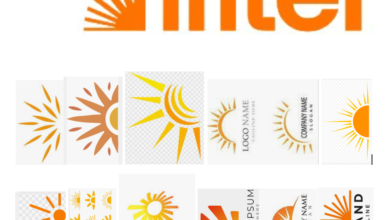[ad_1]
Whether it’s for a rebrand or a new brand, product or service, your company’s name(s) play a vital role in your brand experience. If you’ve been a brand marketer long enough, you will come to recognize and be asked to name to trends. The key problem with this ask is that trends disappear, and what you’re left with is a neon sign of a forgotten time.
Branding is all about long-term planning and investment. Therefore, it’s important that the ideas, especially the name(s) you put into the world are built to last. A good name should deliver on elegance and timelessness vs. being trendy.
Here are a few trends from the past…
- Masculine vs. feminine
- Business vs. consumer
- Coined, empty vessels – internet 2.0, etc.
- Technology of the day – mobile, internet, Cloud, iOT, ML, AI
- Names that end in -ly
- Removing vowels
- Real, English, short, one word
The last one should stand out because we are at the tail end of this era. I’m not saying there isn’t a time and place for this type of name, but we do see it as a trend.
Despite the creative direction, asking these questions to evaluate a name can ensure long-term success: what will a real person in the world respond to? Are they clamoring for short names? Will they only respond to short names? Removing personal bias is crucial; the goal is to develop a solution that gets attention. As a brand marketer, you need the name(s) to stand out and up for a long time, and short names may be “falling short.”
Let’s dispel a few myths of the “short name”:
- “Long names are a mouthful and consumers won’t say them.” – This is often heard, and yes, we as people tend to shorten words or turn them into acronyms, but as a consumer, dismissing a product based on the length of the name is almost unheard of. Millions of people use and love the following brands despite their long names:
- 7 for All Mankind
- Abercrombie and Fitch
- Southwest Airlines
- Mercedes-Benz
- Bank of America
- Fruit of the Loom
- Polo Ralph Lauren
- Savage X Fenty
- Cheesecake Factory
- The North Face
Remember, the most important lesson is to “think like a consumer.” As a consumer, thinking about short vs. long names is not an initial focus. Consumers do think about…and are drawn to names that are… memorable, strike curiosity….
- “Consumers want something that is easy to remember” – This is true, but, super short, quick, one-syllable words often get lost in the mix, especially now. Think of the recent burst in electric scooter names: Bird, Bolt, Lime, Spin, Jump, Circ, etc.
- “We want a short name and a trademark should be fairly easy to get” – It may not be expected but most real English words are long since taken from a legal standpoint (especially in trademark class 9, technology). This is also a common truth for names that are the typical 1 – 2 degrees away from the original idea. When creating a new name the goal is to craft a solution that is fresh and legally viable and therefore, we need to look beyond the expected.
It is true that some companies aren’t overly concerned about trademark and pursue short words that are owned by others. This approach makes it seem like these words are “available.” This is especially poignant in the San Francisco Bay Area because it’s built into the ethos to launch first and figure out the details later. There is sometimes merit in disrupting inefficient and ineffective patterns of the past, however, ignoring trademarks will come back to haunt you. This can communicate that as an organization you do not respect intellectual property. It is also a very expensive method because changing your name once in the marketplace is costly. You may have a short name, but it comes with a tall price.
One could argue that the actual “experience” and offering itself are the most important branding elements. However, a name provides the special opportunity to introduce your wonderful product to the world, so it’s important to send the right signal. It’s your one shot to show you are interesting and different.
Naming in a fresh way may push you out of your comfort zone and requires risk-taking. Uncertainty is often more distressing than knowing something bad will happen. But, it’s comforting to know that informed branding is your best “guess” at what humans will react to, so why not take a chance. You can only fail upwards. This is why we enjoy doing naming differently, looking for ideas where others don’t and using words in new ways.
If you name to trends or show you didn’t put a lot of thought into your name, you may be sending clear communication to the marketplace that you aren’t serious about building a thought-provoking, resilient brand.
Jason Hall is Creative Lead in our Naming practice
The post The myth of the “short name” appeared first on Siegel+Gale.
[ad_2]Source link






